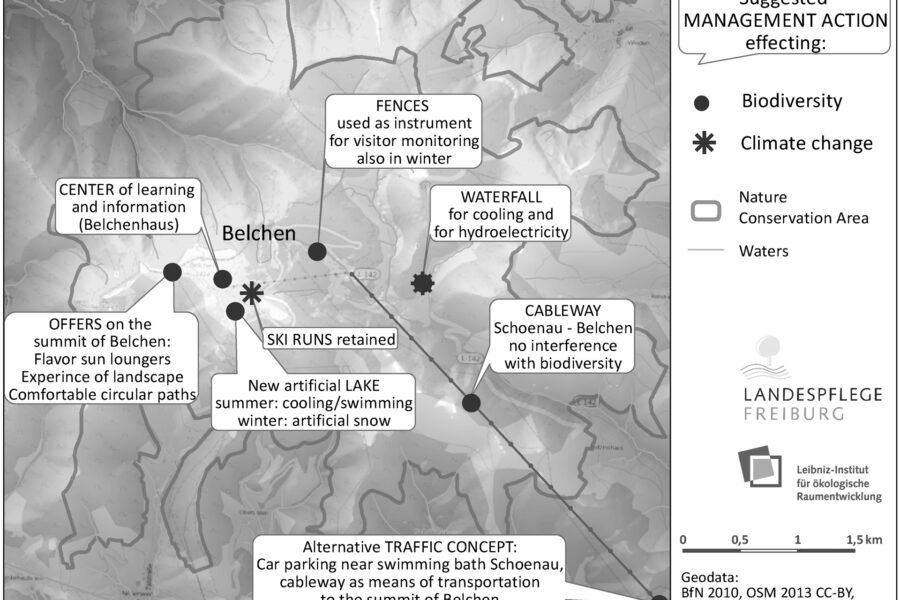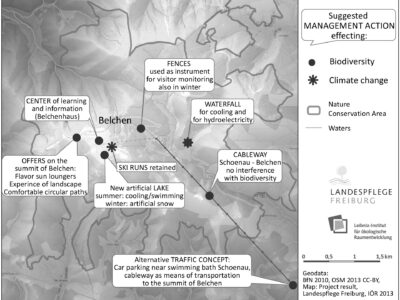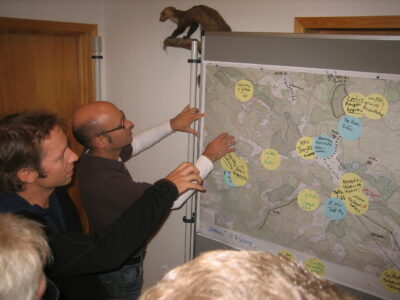In order for tourism regions to achieve long-term sustainable development, they need adaptation strategies to preserve biodiversity under changing climates, demographics, and lifestyles. Strategic planning and visioning can be a powerful tool for developing adequate strategies, especially when it includes all stakeholders. This is especially true in the fields of biological diversity, climate adaptation and tourism development. This project applied participatory scenario techniques to elaborate potential futures for three regions that are representative of German tourism.
The study assessed why there seems to be little integrative long-term strategic planning in tourism regions, and put forward pathways to motivate long term strategic planning. The project offers an example of how participatory scenario planning can contribute to the creation of more robust sustainable development pathways for tourism regions, especially with respect to biodiversity conservation and climate change.
The scenarios were made in: 2012
The scenarios look out to: 2030


